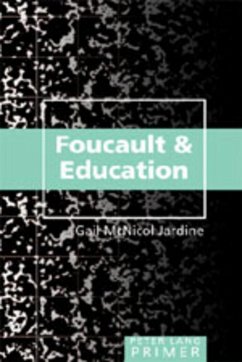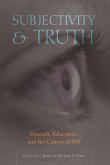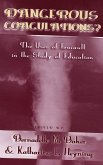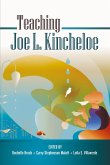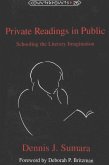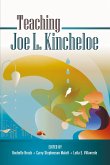This book explores the works of Michel Foucault and their relevance for educational theory and practice. Gail McNicol Jardine investigates Foucault's early examinations of the transformation of systems of knowledge as societies change, his in-depth, critical analyses of Knowledge-Power, and his increasingly more explicit examination of the relationship of the Self to acts of Knowledge-Power. Specific themes that are explored from Foucault's work are archeology, genealogy, disciplinary knowledge and power, normality, the gaze, panopticism, the examination, critique and resistance. This primer contains ample references that allow the reader to examine Foucault's own use of these important analytic concepts and tools. This book will be useful in undergraduate and graduate courses in education, critical theory, educational theory, critical pedagogy, philosophy, psychology, and sociology.
«In tracing the history of modern institutions the work of Michel Foucault has much to say to those who devote their lives to public service. Gail Jardine has provided us with a perceptive interpretive reading of Foucault, citing many practical examples that will ring true - especially for teachers. This is an important book, full of accessible insights.» (Terrance R. Carson, Department of Secondary Education, University of Alberta)

